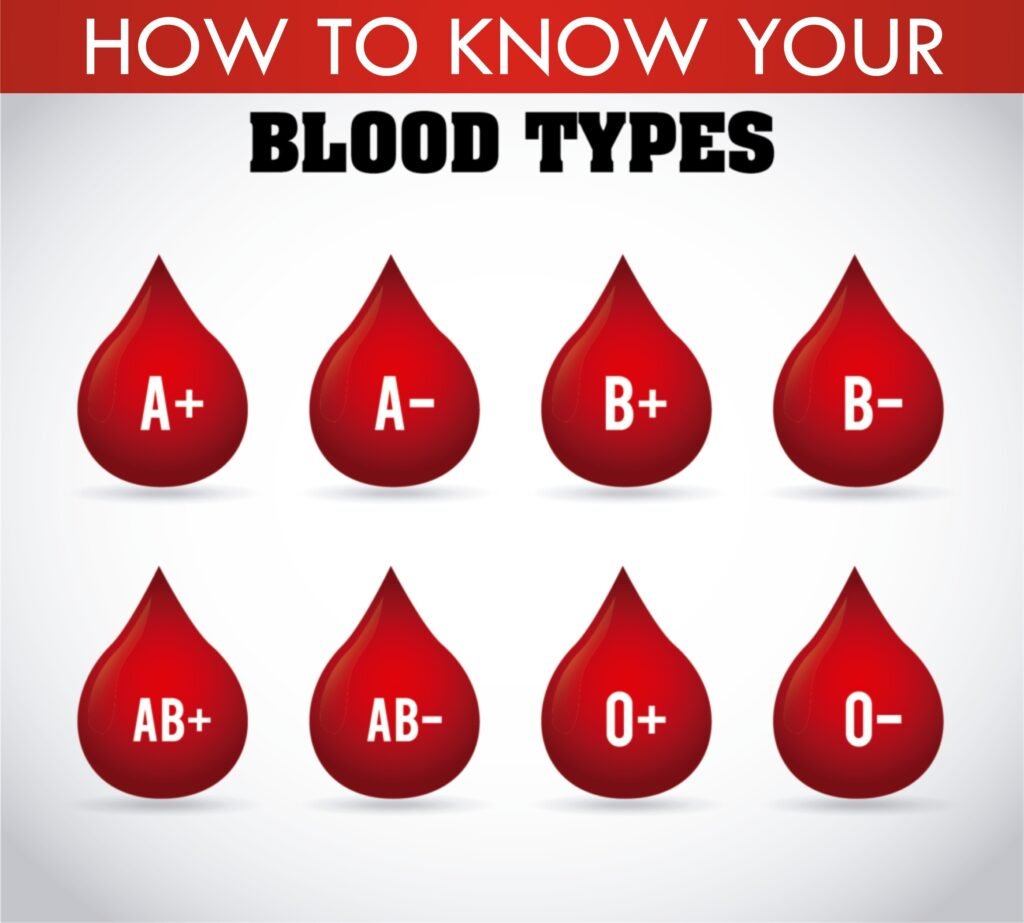
Blood is the fluid of human life. So often, one sees its spillage used as a symbol of a loss of life. However, the red-colored liquid is also a complex mixture – and though poets may think there is no difference between the blood of two individuals, there can be some crucial differences. One such difference is the blood group which is also of critical importance if one wants to donate blood.
Human blood contains several substances, including three kinds of blood cells – Red Blood Cells (RBCs), White Blood Cells (WBCs), and Platelets. RBCs have a substance called hemoglobin, responsible for carrying oxygen from the lungs throughout the body and giving blood its color. There are also several other substances in the blood that may vary from individual to individual, thus leading to the classification of people according to blood groups.
Human beings have eight kinds of blood groups. These include the following
One must get a blood test to determine which blood group one will fall into. There are several options for getting this blood test done.
The following are some effective ways of knowing one’s blood group:
One can easily have a doctor order a blood test to reveal the blood group and other helpful information such as RBC count and WBC count. RBC count is an important figure as a deficiency of the same can lead to Anaemia, and it is particularly prevalent in women who lose a lot of blood during their menstrual days.
Blood donated by various individuals is classified according to different groups. Thus one can also get information about the blood group when presenting. It is the best method of knowing one’s blood as. First, it is free, and secondly, one gets a chance to do something for society.
These tests can also be used to determine one’s blood group and at one’s home itself. Thus one can do them in the comfort of one’s place, which may be a significant advantage since the beginning of the recent COVID-19 pandemic.
A lot of people have doubts and questions regarding gold lockers. Some of the most important of these frequently Asked Questions (FAQs) are discussed in detail below:
Question: Why do different people have different blood groups?
Answer: The human blood may or may not have specific antigens. Similarly, it may or may not have the Rh factor. The presence or absence of various antigens or Rh factors will determine the person’s blood group.
Question: What are various antigens that may determine the blood group?
Answer: The two antigens are A and B, whose presence or absence determines the blood group.
Question: What are various blood groups?
Answer: Blood groups are determined and named with antigens present in them and + (or positive) and – (negative) suffixes attached to show the presence and absence of the Rh factor.
Thus the various blood groups are as follows:
Question: Which blood group can you donate to which blood group? And why?
Answer: The following rules determine which blood group can donate to which group:
An incompatible recipient is likely to have antibodies for the antigens not present in it and thus may not be able to receive the blood. It is also important to note that all the blood groups are not equally common, and some blood groups are much rarer than others,
Question: Why is it important to know about one’s blood group?
Answer: Knowing one’s blood group can help quickly avail blood in case of a medical emergency or accident without testing it for matching the group. One should also mention one’s blood group is one’s medical information and let one’s dear ones know about it.
Question: Are blood groups hereditary?
Answer: No. While the antigens one’s body will have will be determined by the DNA and hence DNA affects the blood group the person will fall into, there is no way to tell what the blood group of children of two parents with a given blood group will be. Thus, various members of a family can have different blood groups.
If the reader has any other queries or doubts, they should feel free to ask.
One can easily wrap up the above discussion by concluding that it is a wise thing to know about one’s blood group, and one can do it easily by using any of the methods mentioned above. Understanding how blood groups work if someone is about to donate or receive blood is also essential.